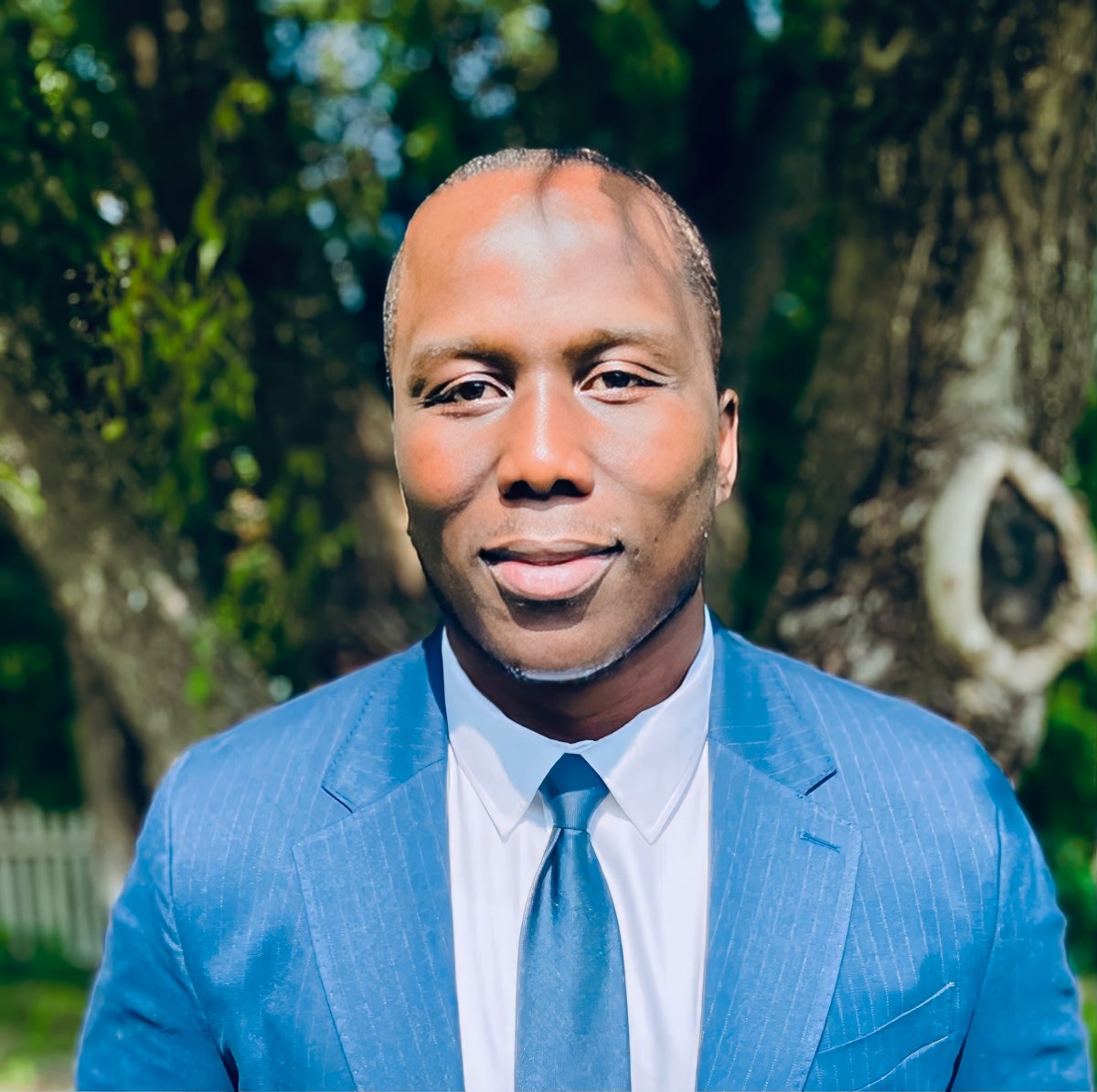KINGSTON, RI – Nov 15, 2024 – Kosean Kokeh ’10, psychology, returned to URI in 2019 to deliver a guest lecture to a group of honor students in the criminology and criminal justice (CCJ) department. He has now been part of URI’s senior part-time faculty as an adjunct professor for the past five years.
Kokeh was first integrated into URI through the talent development program, allowing him to attend the university weeks in advance in order to become acclimated to the new environment.
“I came from a high school that was pretty diverse, but also really fostered education,” Kokeh said. “So having that diversity continue at URI, but also being inspired by specific professors who really wanted to make a difference and working in diverse spaces…that’s the work I wanted to continue,” Kokeh said.
After receiving his undergraduate in psychology, Kokeh attended the University of Saint Leo to pursue his doctorate of criminal justice (DCJ), a new type of terminal degree. This degree not only allows Kokeh to indulge in the practical side of criminal justice, but to gain the ability to understand and formulate effective research. He completed his dissertation on the media representation of murder victims, focusing specifically on victim worthiness and victimology.
“I looked at race, I looked at gender, I looked at the impact of community characteristics, I looked at differences in conservative and liberal media to understand if there was a difference in how people were portrayed,” Kokeh said. “I focused on murder victims because a person’s death, especially in the context of murder, is often a unifying factor. Socially, people tend to respond to a person’s death with sympathy and empathy” Kokeh said.
Kokeh does not look at his career path as a traditional one. Entering URI, Kokeh planned to receive his master’s after his undergraduate degree and one day become a psychologist. This plan changed when he became a father as a senior in college.
“From that point, it was really making decisions to start to improve her life along with the woman that is now my wife,” Kokeh said.
After his daughter was born, Kokeh started working at a mental health hospital, then transitioned to working in corrections as a mental health and substance abuse counselor. During this job, he then transitioned to work as a reentry specialist in Boston. This job led to him becoming a probation officer in Massachusetts. Throughout his career, Kokeh continued to pursue his master’s degree and began to pursue his doctorate once entering the federal system as a probation officer for the District of Rhode Island until June 2023. Currently, Kokeh works as a research associate for justice system partners, working on various initiatives and projects to transform the correctional space to improve the lives of those involved in the correctional system and improve the way criminal justice organizations do their work.
“The work is very impactful and important, but I believe many issues stem from the lack of opportunities for staff to perform at their best due to the environment they’re in,” Kokeh said. “We’re aiming to create a shift in our organization’s function to improve the work environment for their staff, which we believe will ultimately enhance the lives of those they serve…put simply, we argue that staff thriving staff helping justice involved individuals thrive or reach their ideal self image, will yield safer communities and criminal justice outcomes” Kokeh said.
Kokeh currently teaches criminology and criminal justice at URI asynchronously, allowing him more time to prepare lessons and focus on his students with his full-time schedule. While working with his students, Kokeh remains mindful of his experience as a student and acts how he wished his professors would during his academic career.
“I always put it into context,” Kokeh said. “When I am working with students and working on how I develop classes, I want to make sure they are challenged, use critical thinking, but also realize that my class is not the end all, be all…I hope that by the end of my course the students will hold on to a few aspects they found interesting, regardless of their professional or life ambitions. ” Kokeh said.
Not every path you take will lead you to where you think you will end up. Kokeh did not take a traditional path towards his academic and professional career, but has achieved great success in his field.
“I had to accept the challenge and also realize that everything put in front of me was an opportunity for me to move forward and an opportunity to really assess where I was at and what I needed to do to improve my life and the lives of those around me,” Kokeh said. “Don’t shy away from challenges—embrace the opportunities that come your way. That opportunity might just be setting you up to achieve something you truly aspire to in life.”
This article was written by Erin Malinn, class of 2028.

